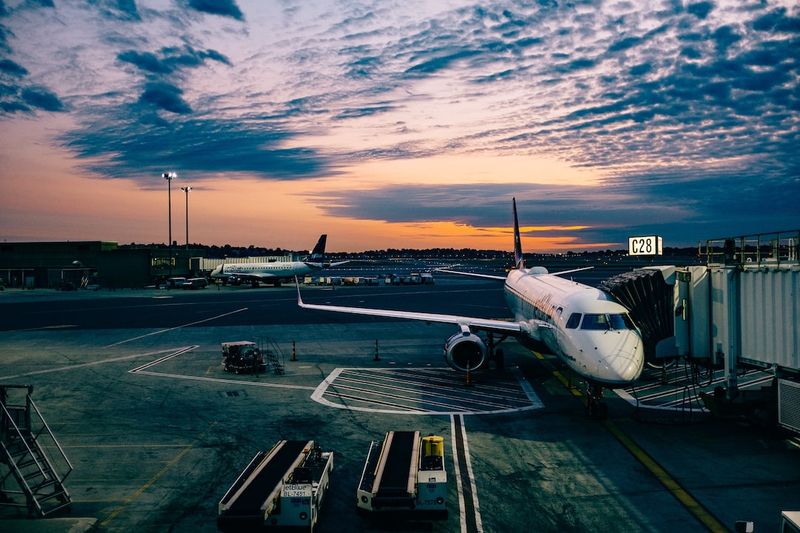Off-duty pilot accused of attempting to crash Alaska Airlines flight
An off-duty pilot has been charged with 83 counts of attempted murder after allegedly trying to crash a passenger jet during a flight on Sunday night. The suspect, identified as Joseph David Emerson, 44, was sitting in the cockpit of an Alaska Airlines flight behind the captain and the first officer when the incident occurred, according to an airline statement. The flight, which had 80 passengers on board, was flying from Everett, Washington to San Francisco, California and was diverted to Portland, Oregon, where the suspect was apprehended without incident.
A chilling incident raises concerns about aviation security
The attempted sabotage of Flight 2059 raises serious concerns about aviation security and raises questions about the screening and mental health assessments of pilots. It is alarming that a pilot, who presumably went through extensive background checks and psychological evaluations, would attempt such an act of violence. This incident is a stark reminder of the trust we place in pilots and the vulnerability we face as passengers.
While incidents like this are rare, they highlight the need for continuous review and enhancement of security protocols within the aviation industry. Airlines must ensure that their screening processes are robust and thorough, including regular mental health assessments for pilots. Additionally, there is a need for increased security measures within the cockpit itself, such as increased surveillance and tighter access control.
The dark side of human nature and the challenges of mental health screening
This incident also raises important philosophical and ethical questions about the dark side of human nature. What drives an individual to carry out such a heinous act? And how can society identify and prevent such behavior?
The complex nature of human psychology makes it incredibly challenging to identify individuals who may pose a threat in a professional setting. Mental health screenings are essential, but they have their limitations. Even individuals who pass rigorous evaluations can experience mental health issues later in life that may lead them to engage in harmful behavior.
It is crucial that mental health assessments evolve to become more comprehensive and ongoing. The aviation industry, in collaboration with medical professionals and psychologists, should work together to develop improved screening tools and protocols that can effectively identify individuals at risk of engaging in dangerous activities.
Editorial: Ensuring passenger safety and trust in aviation
Rebuilding trust and maintaining transparency
Incidents like the attempted crash of Flight 2059 can erode the trust of passengers in the aviation industry. It is vital for airlines and regulatory authorities to be transparent and forthcoming in their communication with the public. Promptly releasing accurate and comprehensive information about the incident, as well as the steps being taken to prevent similar incidents in the future, is essential to rebuilding trust.
Reviewing and enhancing security measures
This incident serves as a wake-up call for the aviation industry to reevaluate and strengthen its security measures. Airlines should conduct thorough audits of their screening processes and consider implementing more stringent mental health assessments for pilots, including regular evaluations throughout their careers.
Furthermore, enhancements to cockpit security should be made, including improved surveillance systems and stronger access control mechanisms. The safety of passengers should always be the top priority, and every effort should be made to ensure that incidents like this one never happen again.
Promoting mental health support for pilots
Piloting is a highly stressful profession, and it is crucial that the mental health of pilots is prioritized. Airlines should provide comprehensive mental health support programs for their pilots, offering access to counseling services, stress management programs, and resources to help them cope with the demands of their job. Creating an environment where pilots can openly discuss mental health and seek help without fear of professional repercussions is essential.
Conclusion
The attempted crash of Alaska Airlines Flight 2059 is a chilling reminder of the potential vulnerabilities within the aviation industry. It is vital that airlines, regulatory authorities, and the wider society work together to enhance security measures, improve mental health screening protocols, and prioritize the well-being of pilots. Only through these concerted efforts can we ensure the safety and trust of passengers as they travel through the skies.

<< photo by Ashim D’Silva >>
The image is for illustrative purposes only and does not depict the actual situation.
You might want to read !
- Off-duty pilot Joseph Emerson accused of attempting to crash Alaska Airlines flight: Investigating the potential for abuse of authority and safety breaches in the aviation industry
- Editorial Exploration: Examining the impact of Alexander Mattison’s injury on the Vikings and his return in Week 7.
Title: “Assessing Alexander Mattison’s Injury and the Vikings’ RB Return in Week 7”
- Bitcoin’s Price Surge: Exploring ETF Excitement and a Wild Few Minutes
- Rebecca Loos Slams David Beckham: Deconstructing the Image of the Iconic Athlete
- Off-duty pilot charged with 83 counts of attempted murder: Exploring the boundaries of responsibility and accountability
- The Rise and Fall: Exploring the Allegations Against Kansas City Chiefs WR Justyn Ross
- Apologies Offered: Michigan State’s Regretful Display of Hitler Image
- The Vulnerability of Air Travel: Analyzing the Implications of an Off-Duty Pilot’s Diversion
- Georgetown Women’s Basketball Coach: A Legacy Remembered, A Community Mourns




